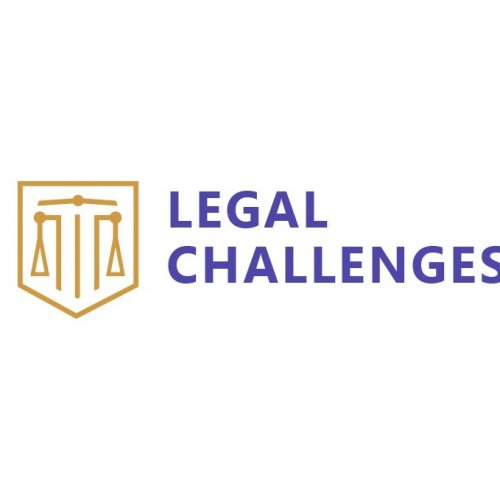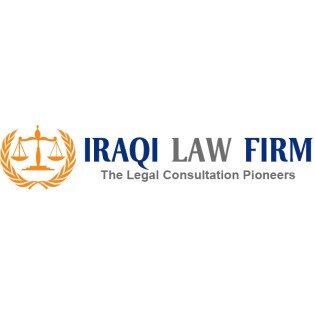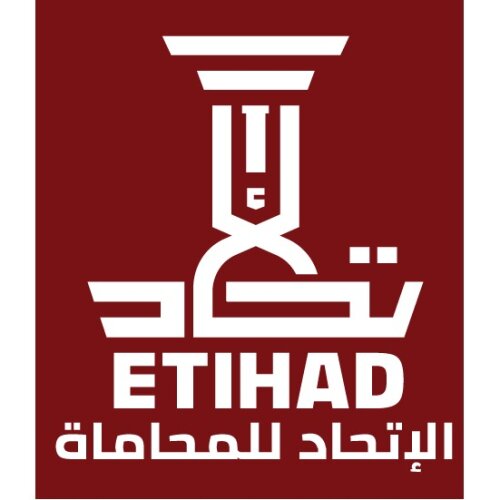Best Acquisition / Leveraged Finance Lawyers in Iraq
Share your needs with us, get contacted by law firms.
Free. Takes 2 min.
Or refine your search by selecting a city:
List of the best lawyers in Iraq
About Acquisition / Leveraged Finance Law in Iraq
Acquisition and leveraged finance law in Iraq governs the structuring and funding of mergers and acquisitions, particularly those transactions involving borrowed funds or leveraging existing assets. This area of law involves the legal frameworks and regulatory requirements for companies and investors seeking to acquire businesses or assets using a combination of debt and equity. While Iraq's financial sector is evolving, acquisition and leveraged finance has become increasingly relevant as foreign investment grows and more companies seek expansion within the country.
Why You May Need a Lawyer
There are several reasons why individuals and businesses may require legal assistance in acquisition and leveraged finance in Iraq. Common situations include:
- Negotiating the purchase or sale of a business and securing suitable financing
- Structuring legal agreements between lenders, borrowers, and investors
- Navigating regulatory approval processes for foreign direct investments or mergers
- Ensuring compliance with the Central Bank of Iraq or the Iraq Stock Exchange rules
- Managing risks related to anti-money laundering and anti-corruption laws
- Resolving disputes between parties in cross-border transactions
- Drafting and reviewing financing documents such as loan agreements, security documents, and guarantees
- Advising on tax implications and the repatriation of profits
Legal advice can be critical in minimizing risks, ensuring successful deal closure, and protecting your interests throughout the funding process.
Local Laws Overview
Iraq’s legal framework for acquisition and leveraged finance is based on a combination of commercial, financial, and civil laws. Key aspects to consider include:
- Banking Regulations: The Central Bank of Iraq oversees the licensing and regulation of banks and foreign financing. There are restrictions on lending and certain capital adequacy requirements must be fulfilled.
- Company Law: The Iraqi Companies Law provides rules on the formation of companies, mergers, acquisitions, and corporate governance. Acquisition structures must comply with shareholder approval and disclosure requirements.
- Foreign Investment Laws: Regulated by the National Investment Commission, foreign investors may require special permits. There are specific rules on ownership, profit repatriation, and protection of foreign assets.
- Securities Law: If the target is a public company or involves listed shares, the Iraq Stock Exchange rules apply, including tender offer procedures and disclosure of significant shareholdings.
- Security Interests: The Civil Code and related regulations govern the use of collateral. Registration of security over assets must follow legal procedures to be enforceable.
- Anti-Money Laundering: Strict due diligence, source of funds verification, and reporting requirements are enforced to prevent illicit financing.
Because laws and regulations may change, it is essential to obtain up-to-date legal advice specific to your transaction and sector.
Frequently Asked Questions
What is leveraged finance in the context of Iraq?
Leveraged finance refers to the use of borrowed funds, often alongside equity, to finance the acquisition of a business or asset. In Iraq, such financing typically involves local or foreign banks, private investors, or multilateral agencies.
Can foreign investors participate in acquisition finance deals in Iraq?
Yes, foreign investors can participate, but they must comply with local investment laws, secure the necessary approvals, and sometimes partner with Iraqi nationals, depending on the sector.
What legal due diligence is required for acquisition finance?
Due diligence covers the target company's financial records, ownership structure, legal compliance, outstanding debts, and encumbrances. Legal counsel typically reviews contractual obligations and regulatory issues before a deal closes.
Are there restrictions on repatriating profits from acquisition deals?
While foreign investors have the right to repatriate profits, there are reporting requirements and procedures established by the Central Bank. Early planning with legal advice is essential to avoid delays.
What collateral can lenders take under Iraqi law?
Lenders can take security over various assets, including real estate, equipment, shares, and project receivables. Collateral must be registered according to Iraqi law to ensure enforceability.
How long does the acquisition finance process take in Iraq?
Timelines vary by transaction complexity, regulatory approvals, and due diligence. Deals can typically take several months from negotiation to completion.
What are the risks in leveraged transactions in Iraq?
Risks include political and regulatory changes, enforceability of contracts, currency fluctuations, and local dispute resolution challenges. Working with experienced legal professionals can help mitigate these risks.
Are there specific tax considerations in acquisition finance?
Yes, Iraq imposes taxes on capital gains and interest. Structuring the transaction to optimize tax efficiency requires legal and tax advice.
What government approvals might be necessary for acquisition finance?
Depending on the sector, you may need approval from the National Investment Commission, Central Bank of Iraq, and relevant ministries. Public company deals may involve the Iraq Stock Exchange.
Can disputes from acquisition finance transactions be resolved locally?
Disputes can be resolved in Iraqi courts or, if agreed, through arbitration locally or internationally. Including clear dispute resolution clauses in contracts is crucial.
Additional Resources
Those seeking to learn more or obtain help in acquisition and leveraged finance in Iraq may consider the following organizations and bodies:
- Central Bank of Iraq - regulatory authority for banking and financial services
- National Investment Commission - approvals and support for foreign investment
- Iraq Stock Exchange - oversight of public securities and tender offers
- Local Chambers of Commerce - business regulations and professional referrals
- Recognized law firms with expertise in acquisition and corporate finance
- International financial institutions active in Iraq, such as IFC and EBRD
Next Steps
If you plan to engage in an acquisition or leveraged finance transaction in Iraq, consider taking the following steps:
- Conduct an initial feasibility study and business assessment
- Engage a qualified lawyer specializing in acquisition and finance law
- Assemble a team of financial, tax, and legal advisors
- Review applicable laws, regulations, and contractual obligations
- Secure preliminary approvals or documentation as needed
- Negotiate and draft all agreements with appropriate safeguards
- Register security interests and comply with reporting requirements
- Prepare for closing and effective integration or management post-acquisition
Obtaining tailored legal advice early in the process can help ensure compliance, mitigate risks, and achieve successful outcomes in your acquisition or leveraged finance endeavors in Iraq.
Lawzana helps you find the best lawyers and law firms in Iraq through a curated and pre-screened list of qualified legal professionals. Our platform offers rankings and detailed profiles of attorneys and law firms, allowing you to compare based on practice areas, including Acquisition / Leveraged Finance, experience, and client feedback.
Each profile includes a description of the firm's areas of practice, client reviews, team members and partners, year of establishment, spoken languages, office locations, contact information, social media presence, and any published articles or resources. Most firms on our platform speak English and are experienced in both local and international legal matters.
Get a quote from top-rated law firms in Iraq — quickly, securely, and without unnecessary hassle.
Disclaimer:
The information provided on this page is for general informational purposes only and does not constitute legal advice. While we strive to ensure the accuracy and relevance of the content, legal information may change over time, and interpretations of the law can vary. You should always consult with a qualified legal professional for advice specific to your situation.
We disclaim all liability for actions taken or not taken based on the content of this page. If you believe any information is incorrect or outdated, please contact us, and we will review and update it where appropriate.
Browse acquisition / leveraged finance law firms by city in Iraq
Refine your search by selecting a city.

















